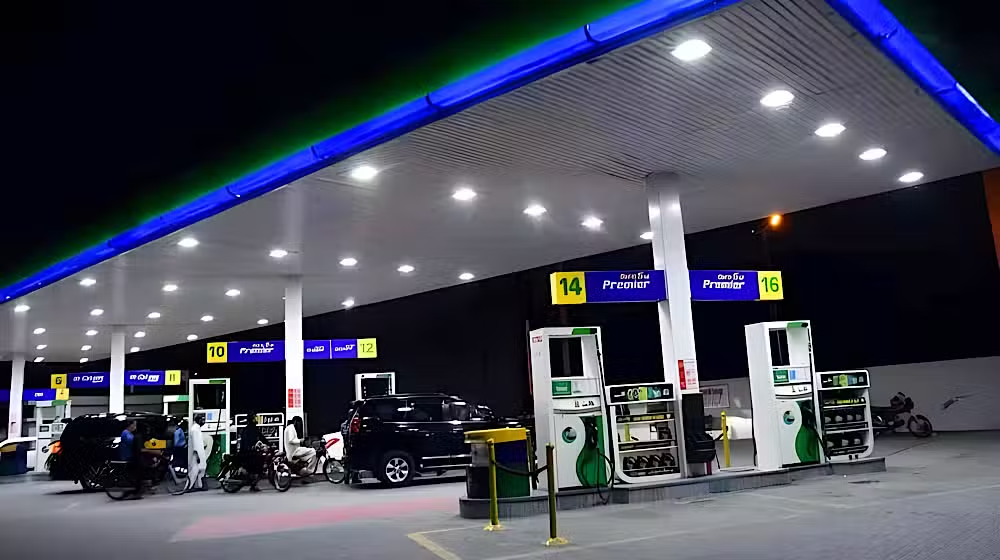The federal government of Pakistan has announced that it will maintain the current petrol and high-speed diesel prices for the next fortnight, despite a significant decline in global oil prices.
The move, aimed at supporting key infrastructure development in Balochistan, reflects the administration’s commitment to long-term national interests over short-term consumer relief.
Current Fuel Prices Remain Unchanged
- Petrol will continue to retail at Rs. 254.63 per litre
- High-speed diesel (HSD) will remain at Rs. 258.64 per litre
This decision comes at a time when international oil prices have witnessed a steep decline of nearly 14%, driven by rising supply from OPEC+ nations and concerns over tariffs reintroduced by U.S. President Donald Trump.
Prime Minister Shehbaz Sharif, while chairing a high-level Federal Cabinet meeting, clarified that the government will not pass on the drop in international fuel prices to consumers immediately.
The first major initiative to benefit from these funds is the dualization of the N-25 highway, also known as the RCD Highway. This vital route connects Karachi to Chaman, and is a major commercial artery between Pakistan and Afghanistan.
The Federal Cabinet has also approved an amendment to the Petroleum Products (Petroleum Levy) Ordinance, 1961, upon the recommendation of the Petroleum Division.
This amendment provides the government with more flexibility to manage fuel taxation policies and to respond to fluctuating international market dynamics.
Rationale Behind Holding Fuel Prices Steady
While consumers were anticipating a drop in prices at the pump, the government has adopted a pragmatic approach to resource allocation.
- Ensure financial discipline in public sector spending
- Invest in long-term national infrastructure priorities
- Maintain macroeconomic stability amid global volatility
The government’s decision has drawn mixed reactions from different segments of society. While many support the developmental objectives, consumer rights groups have expressed disappointment over the lack of immediate relief.
Experts from the energy and transportation sectors have praised the focus on infrastructure, emphasizing that better roads and irrigation systems will have compounding benefits for the country’s productivity and logistics efficiency.
Economic analysts agree that redirecting petroleum savings toward infrastructure could have a multiplicative impact on GDP growth, particularly if it creates employment and stimulates regional trade.
- OPEC+ has ramped up supply, contributing to an excess in global inventories
- Trade tensions reignited by U.S. tariff policies under President Donald Trump have added to economic uncertainty
- Global demand remains subdued amid concerns of a slowdown in major economies, including China and the European Union


